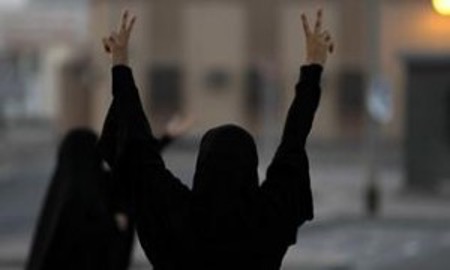“Combining differing ethnic and religious cultures into a democratic political structure is most difficult. The principles of power sharing in such a platform are alien in North Africa and the Arabian Peninsula.”
Commentary Part II: North Africa and Arabian Peninsula
In the Arab Spring dissidents involved in the uprisings used the U.S. and European allies for financial and military support, which led to regime change, but not to the democratic outcome that everyone had expected. The ultraconservative Salafi Islamists may well become the beneficiaries of our efforts to achieve democratic governance. In the North African countries Salafists are pressing to institute Sharia, the strict Islamic law. Time will tell if the fragile governments formed to date will succeed, and whether the existing autocratic rulers will survive. If economic changes, needed to improve the poverty conditions in these countries, are not instituted quickly, we can expect more uprisings in which the Salafi Islamists will try to turn the countries into Islamic states.
We may still see more bloodshed in these countries, since attaining democracy in a tribal society will be difficult to attain. The protesters have said they wanted ‘change’, which we interpreted as our form of democracy, which is a cliché in this part of the world. In reality the Salafists observe the narrow tenets of early orthodox conservatives, which clash with the tenets of democracy. The State Department recently defended the regime change stating, “It was the process that matters, not the ideologies of those taking part,” and noting that “Along the way [they] trained and gave guidance to the Muslim Brotherhood and other fundamentalist candidates in the electioneering process.”
 Protesters in Bahrain (Photo: Hasan Jamali/AP)
Protesters in Bahrain (Photo: Hasan Jamali/AP)
In the Arabian Peninsula, Jordan, Kuwait, and Oman have made major concessions to avoid demonstrations with dissidents clamoring for regime change. Uprisings in Bahrain and Lebanon however continue, while in Saudi Arabia discontent is festering. In the New York Times article on October 14, 2012, “Rebel Arms Flow is Said to Benefit Jihadists in Syria”, it was noted that “Most of the arms shipped at the behest of Saudi Arabia and Qatar to supply Syrian rebel groups fighting the government of Bashar al-Assad are going to hardline Islamic jihadists, and not the more secular opposition groups that the West wants to bolster....” The Times article further noted that the Obama Administration knew that the military aid intended for the rebel militias, was ending up in the hands of radical Islamists. Saudi Arabia and Qatar have been the intermediaries responsible for these arms reaching the right militia groups. It was concerning that the CIA helping in the distribution process, lacked reliable intelligence data on the different rebel militias. Arms' getting into the hands of radical Islamists was also a problem in North Africa.
The regime change brought about by the Arab Spring, has emboldened the Salafi Islamists wanting to establish a Pan-Islamic caliphate, and govern under Islamic law. The killing of Osama bin Laden has not led to a decline of Al-Qaeda’s influence. In the CNN World article of October 12, 2011, “Al Qaeda leader urges Libya to adopt Islamic law, beware of the West,” Ayman al-Zawahiri the Al-Qaeda leader and Muslim Brotherhood hardliner said, “Libyans should move quickly to establish Sharia, the Islamic law.” He further stated, "I call upon the Algerian people to follow in the footsteps of your brothers in Libya and Tunisia and to revolt against your tyrant.” This was a call for all Muslims to rise up and overthrow the autocratic rulers, and institute Islamic governance. He also reaffirmed the jihad against the United States. Al-Qaeda and its affiliates AQIM, AQAP, Ansar al-Sharia, Libyan Islamic Fighters, Ansar Dine, AQ in Iraq, Boko Haram, and the Movement for Oneness and Jihad in West Africa (MOJWA) are dangerous and well-armed, able to undertake attacks as we recently witnessed in Benghazi. They are as brutal as their predecessors, as we are finding out in Afghanistan, with the next generation of Taliban.
Related Articles:
The Washington Post
Egypt’s Islamist revival most evident at the grass roots
By Abigail Hauslohner, October 16, 2012
Full Story: http://www.washingtonpost.com/world/middle_east/egypts-islamist-revival-most-evident-at-the-grass-roots/2012/10/16/064652b0-158f-11e2-ba83-a7a396e6b2a7_story.html
The Washington Post
Militant jihadists’ rise in Arab world imperils region’s stability
By Ernesto Londoño and Liz Sly, October 15, 2012
Full Story: http://www.washingtonpost.com/world/national-security/militant-jihadists-rise-in-arab-world-imperils-regions-stability/2012/10/15/8764c256-14ad-11e2-be82-c3411b7680a9_story_1.html
The New York Times
Rebel Arms Flow Is Said to Benefit Jihadists in Syria
By David E. Sanger, October 14, 2012
Full Story: http://www.nytimes.com/2012/10/15/world/middleeast/jihadists-receiving-most-arms-sent-to-syrian-rebels.html?pagewanted=all&_r=0
NYR
How Morocco Dodged the Arab Spring
By Nicolas Pelham, July 5, 2012
Full Story: http://www.nybooks.com/blogs/nyrblog/2012/jul/05/how-morocco-dodged-arab-spring/